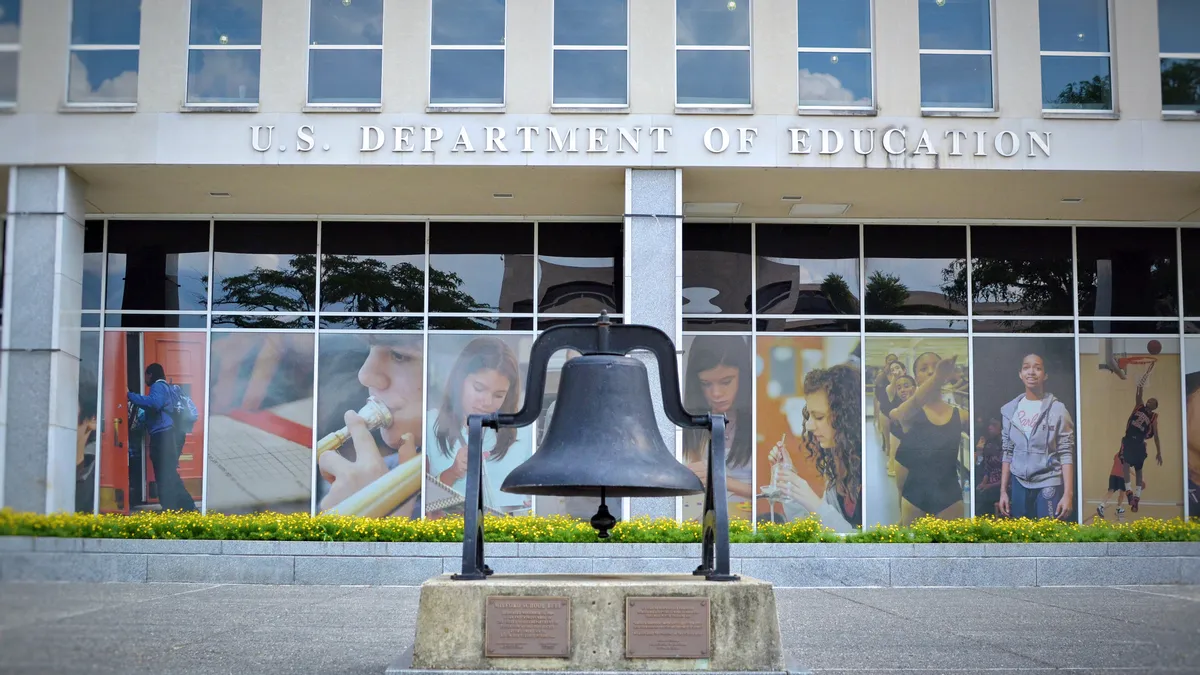Dive Brief:
- The California State University system needs to "reimagine long‐held assumptions around student success" to close college achievement gaps for its Black students, according to a report this week from a Cal State workgroup.
- Each of Cal State's 23 institutions should develop a data-driven retention plan for Black students and other groups facing similar persistence gaps, the report said. They should also create an inclusive and culturally relevant curriculum to engage students, as well as provide the employee training needed to teach such subject matter.
- Black faculty and staff are crucial to these goals, according to the report. The workgroup recommends that Cal State prioritize recruiting faculty members with a record of teaching and conducting research with diverse students. It should also invest in supporting Black employees.
Dive Insight:
Cal State bills itself as the country's most diverse four-year public university system. But it is experiencing an ongoing decline in the enrollment and retention of Black students, despite an initiative meant to increase graduation rates, the report said.
Under the Graduation Initiative 2025, Cal State’s graduation rates have reached record highs, according to the system. Of first-year students who enrolled in fall 2016, 62% earned their degree in six years.
But the data disaggregated by race shows a persistence gap in student outcomes. Less than half of Black first-year students in the same cohort, 48%, earned their degree in that timeframe, according to the report.
In October, the system's interim chancellor, Jolene Koester, urged the system to address these issues, leading to the creation of the Strategic Workgroup on Black Student Success. University presidents, administrators and system officials comprised the group.
Systemwide, Cal State should give university leaders access to disaggregated data and campus climate data so they can create informed practices to improve academic outcomes, the group said in the report. The Chancellor’s Office should also meet regularly with these leaders to foster a data-informed culture.
However, many of the workgroup's recommendations are at the institutional level.
"The CSU is facing a potential future where Black students and Black excellence may be unrecognizable if action is not taken," it said, arguing that a one‐size‐fits‐all approach will not succeed.
Each university must create an early outreach program with K-12 schools and community partners to help smooth the transition between secondary education and college, the report said. They should send plans for the program to the Chancellor’s Office for approval.
Student and faculty feedback also guided the recommendations.
"Money and resources are put into getting Black students to attend CSU, but no effort is put into retention," one student told the workgroup. "There are too few Black faculty and staff, and these small numbers don’t have enough power or job security to be effective in support of Black students.”
The report recommends that Cal State universities create and foster affirming spaces for Black students to support them once they have enrolled.
It also emphasized the importance of supporting Black university employees. Cal State should invest in employee support services and fund academic work related to affinity groups focused on Black culture and tradition. The universities should also foster dialogue between college leadership and Black faculty and staff to help address diversity, equity and inclusion goals.
"I don’t want it to just be a show — we need a cultural shift," a Cal State faculty member said. "If this is performative, I’m not down for it.”













